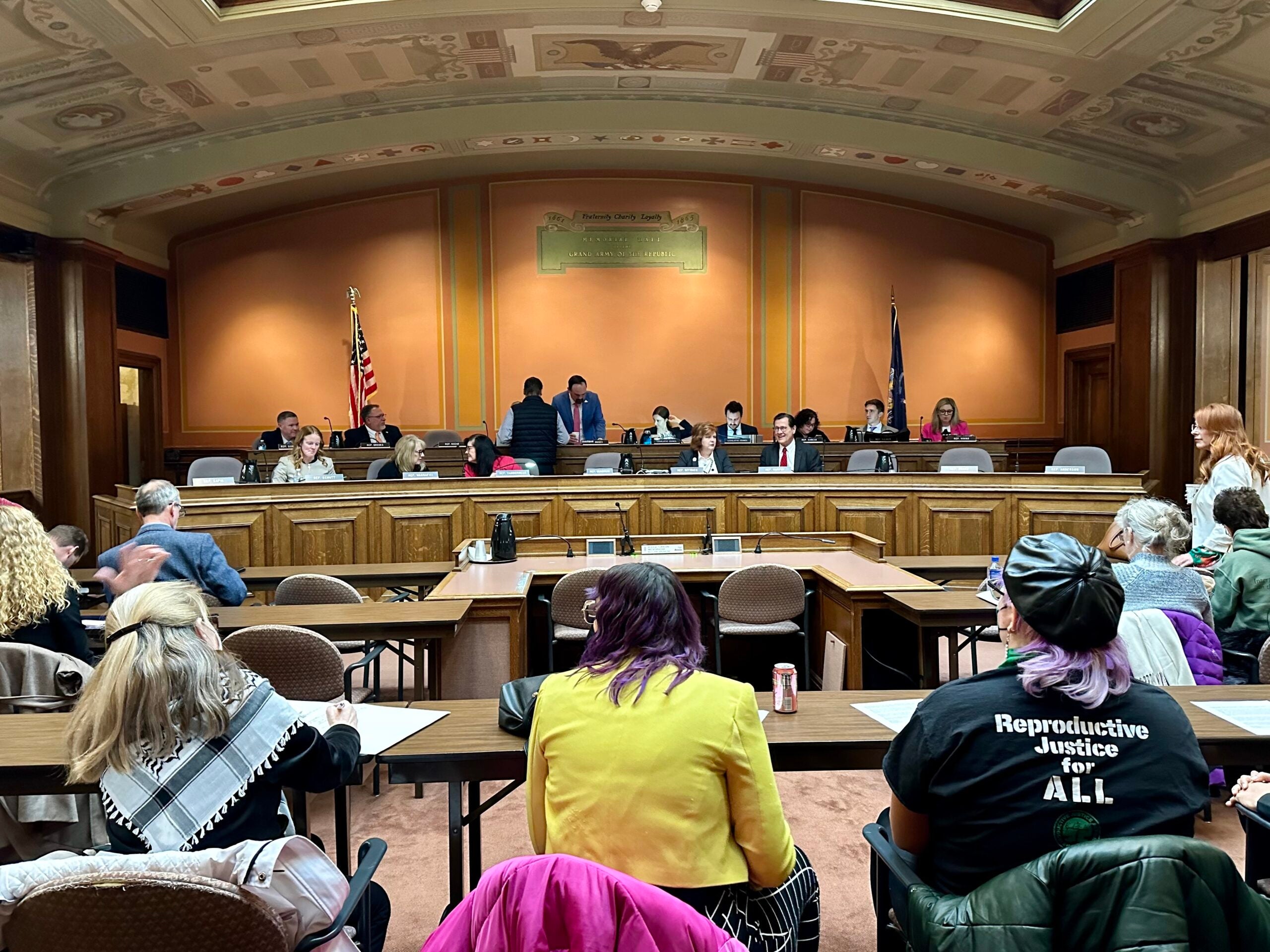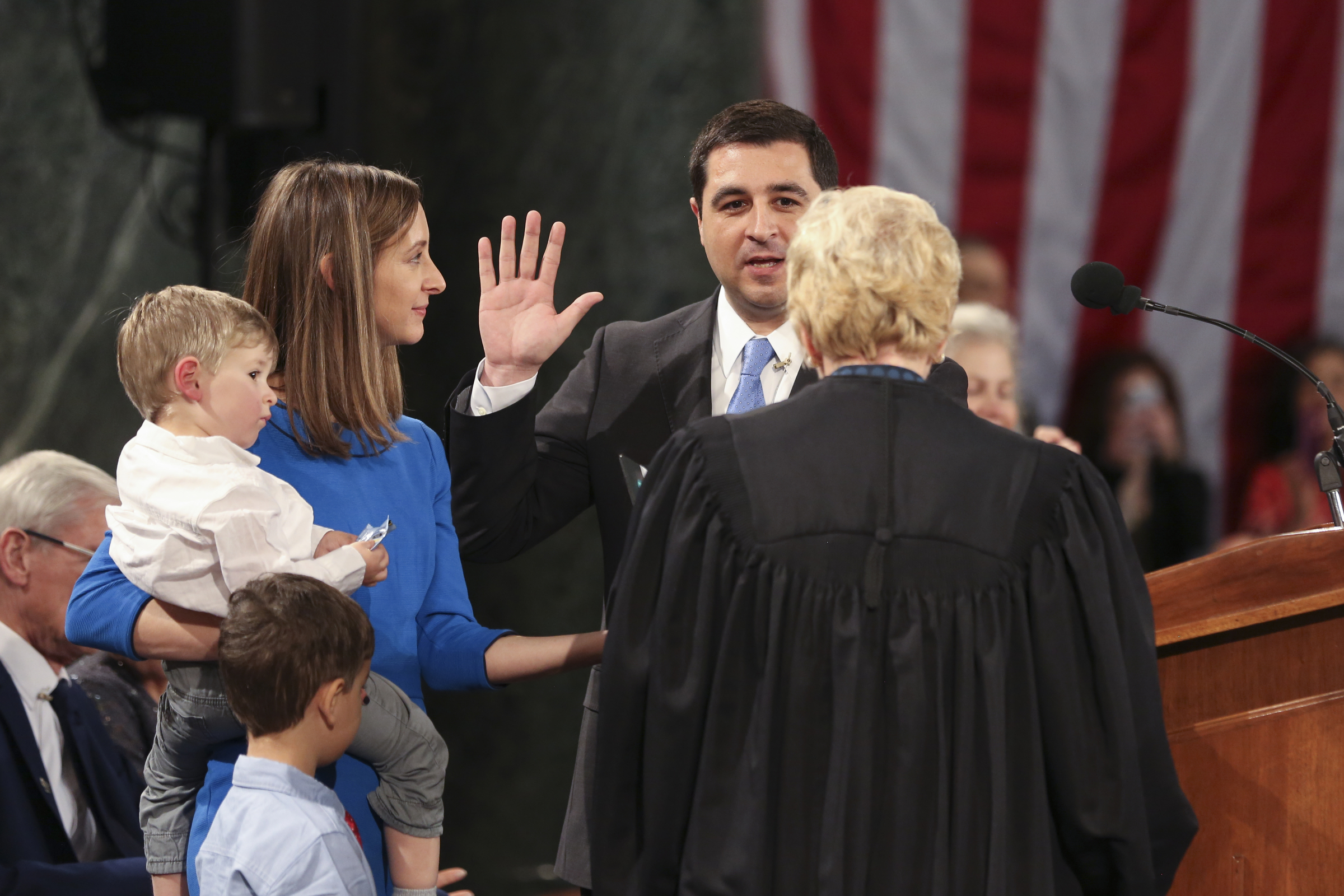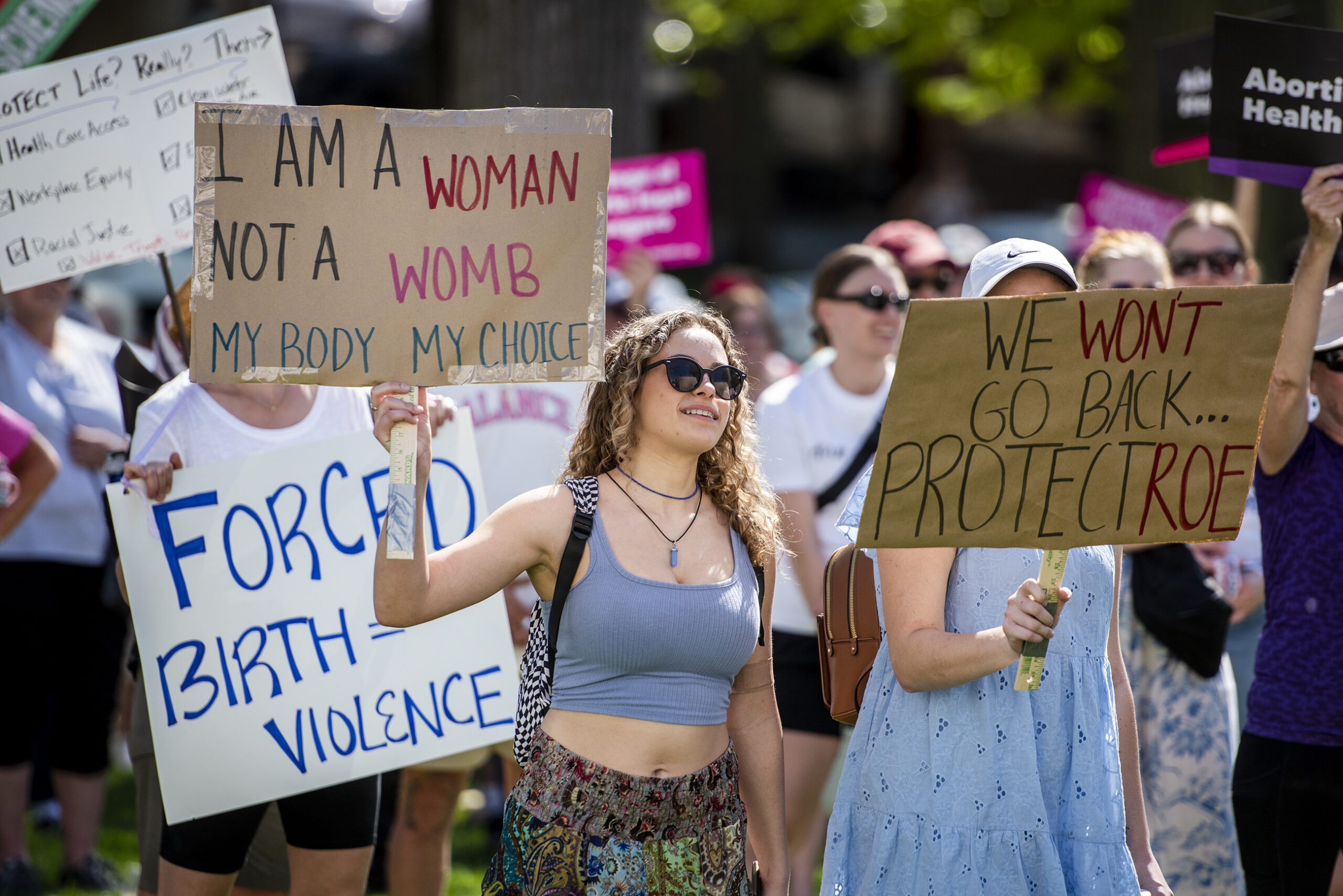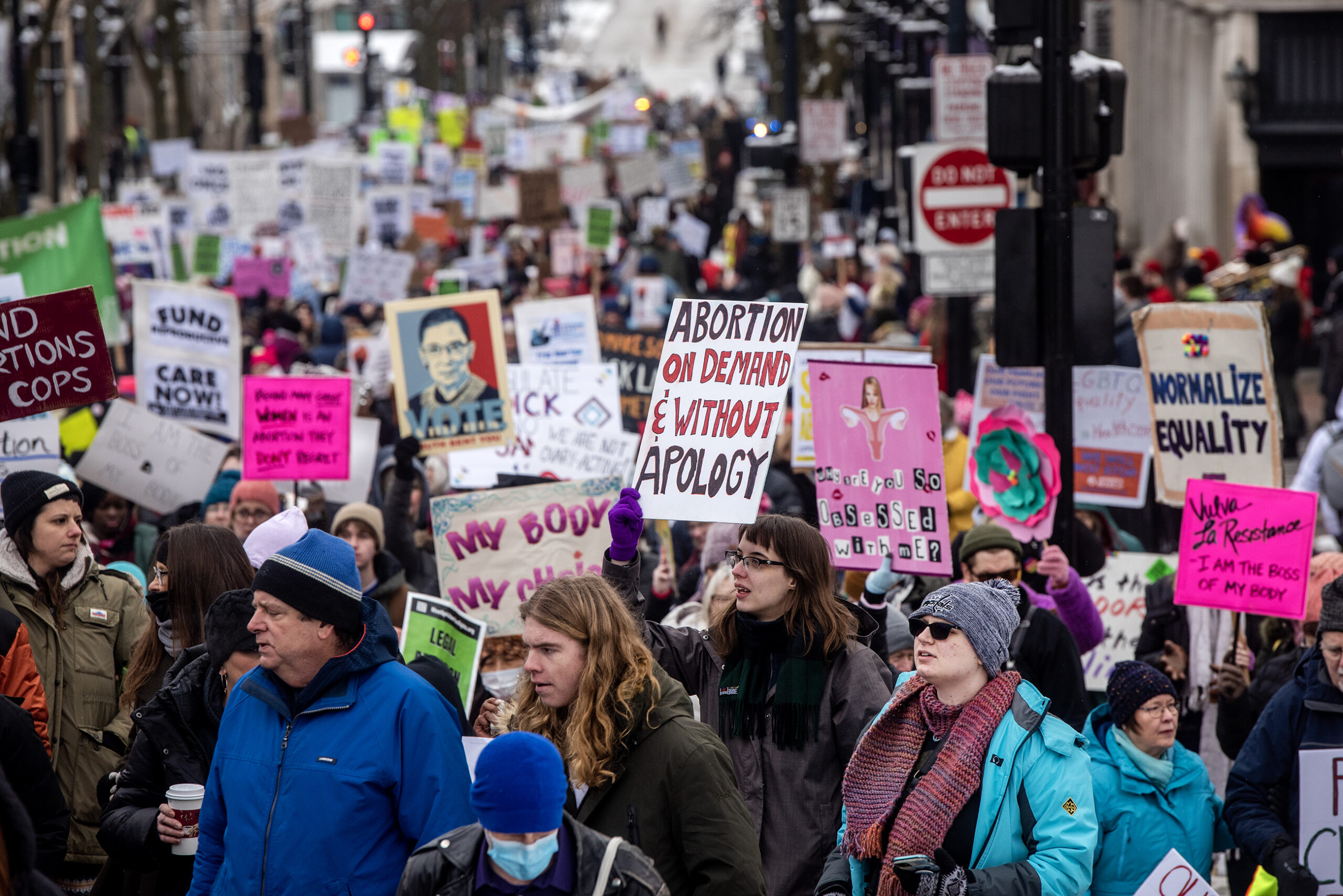On the anniversary of the Roe v. Wade decision, opponents and supporters of abortion access testified at the Wisconsin State Capitol against a bill that would restrict abortions in Wisconsin to the first 14 weeks of pregnancy.
The GOP authors of the proposal describe it as a compromise bill in the face of a pending legal challenge to a Civil War-era law that has long been interpreted as banning abortion in Wisconsin entirely.
Both supporters and opponents of abortion access spoke out against the bill, as each side hopes a court case will resolve abortion’s legal status in their side’s favor.
Stay informed on the latest news
Sign up for WPR’s email newsletter.
As proposed, the bill would limit access to abortion to 14 weeks, down from 20 weeks. It contains an exception to preserve the life of or prevent serious injury to a pregnant woman.
It would have to be approved by voters in an April referendum if passed by the Legislature and signed by the governor. Gov. Tony Evers has pledged to veto the bill before it can get to the ballot box.
At a public hearing of the Assembly Committee on Health, Aging and Long-Term Care, the bill’s author, Rep. Amanda Nedweski, R-Pleasant Prairie, described the proposal as a compromise that would invite voters to weigh in on the matter.
“As a realist and a pragmatist, I authored this life-saving legislation to ask the people what they want — to find out where we truly are in this society,” Nedweski said.
Laura Swoboda, a nurse practitioner, argued that the bill would put onerous restrictions on accessing reproductive health care.
“While this is a deeply personal issue for me, I’m also professionally aware of the disparate effect that this type of legislation has on an already vulnerable populations,” she said.
“I don’t want to work as a provider in a state that doesn’t offer full access to health care due to gender, and I don’t want my child to grow up in a state where we discriminate against the personal autonomy of someone due to their gender,” she added.
Meanwhile, Wisconsin’s leading anti-abortion groups — including Wisconsin Right to Life, Wisconsin Family Action, Pro-Life Wisconsin and the Wisconsin Catholic Conference — also registered in opposition to the bill.
In a statement, they said legislators should not weigh in on the status of abortion access while a court case clarifying Wisconsin’s abortion law is pending.
“To prohibit abortion at 14 weeks is virtually meaningless,” said Jack Hoogendyk, Wisconsin Family Action’s legislative and policy director.
If the Wisconsin Supreme Court rules that the 19th-century law isn’t a total abortion ban, he added, “then, if necessary, we can consider new legislation to once again protect our littlest citizens.”
The abortion rights group Planned Parenthood Advocates of Wisconsin also registered against the plan, as did the American College of Obstetricians and Gynecologists, the ACLU and the Wisconsin Coalition Against Sexual Assault.
The bill includes an exception for “medical emergency,” which is defined as “a condition, in a physician’s reasonable medical judgment, that so complicates the medical condition of a pregnant woman” that an abortion will prevent death or “substantial and irreversible impairment of one or more of the woman’s major bodily functions.”
A challenge to Wisconsin’s abortion ban is pending in the courts
The bill was introduced Friday and immediately scheduled for a hearing Monday — the 51st anniversary of the passage of Roe v. Wade.
That U.S. Supreme Court decision enshrined a federal right to abortion access until it was overturned in 2022, functionally kicking the question of abortion’s legality back to the state level.
In Wisconsin, a law from the mid-19th century was widely interpreted as barring abortion in the state. Abortion providers ended services, and abortion opponents celebrated.
Shortly thereafter, Wisconsin Attorney General Josh Kaul filed a lawsuit challenging that law. As that challenge has made its way through the state court system, lower court decisions determined that the law bans feticide, rather than consensual abortion. Some abortion providers have since resumed their services.
Sheboygan County District Attorney Joel Urmanski has said that he will appeal that ruling to the Wisconsin Supreme Court.
Republican U.S. Sen. Ron Johnson, who has voiced support for a statewide referendum on the abortion issue in the past, issued a statement Monday supporting the legislation.
“If signed into law, the bill would only take effect if it also receives a majority of votes in a statewide, binding referendum. In other words, the voters of Wisconsin will decide,” he said. “What the bill is proposing will allow the voters of Wisconsin to decide what a reasonable solution is to this profound moral issue.”
But the GOP bill would only go before voters if approved by the governor, and Evers has previously said that he will not sign off on any bill that restricts abortion.
“If Republicans had their way, they’d ask Wisconsinites to strip themselves of some of the very reproductive freedoms that were only just recently restored,” he wrote on social media Sunday. “I will not let Wisconsinites go back to the way the way things were a year ago, much less 50 years ago before #Roe. Period.”
The latest GOP bill comes as Republicans prepare for another election cycle in which Democrats are likely to highlight the abortion issue. Earlier Monday, Vice President Kamala Harris visited Waukesha County to voice support for abortion access.
Wisconsin Public Radio, © Copyright 2025, Board of Regents of the University of Wisconsin System and Wisconsin Educational Communications Board.





